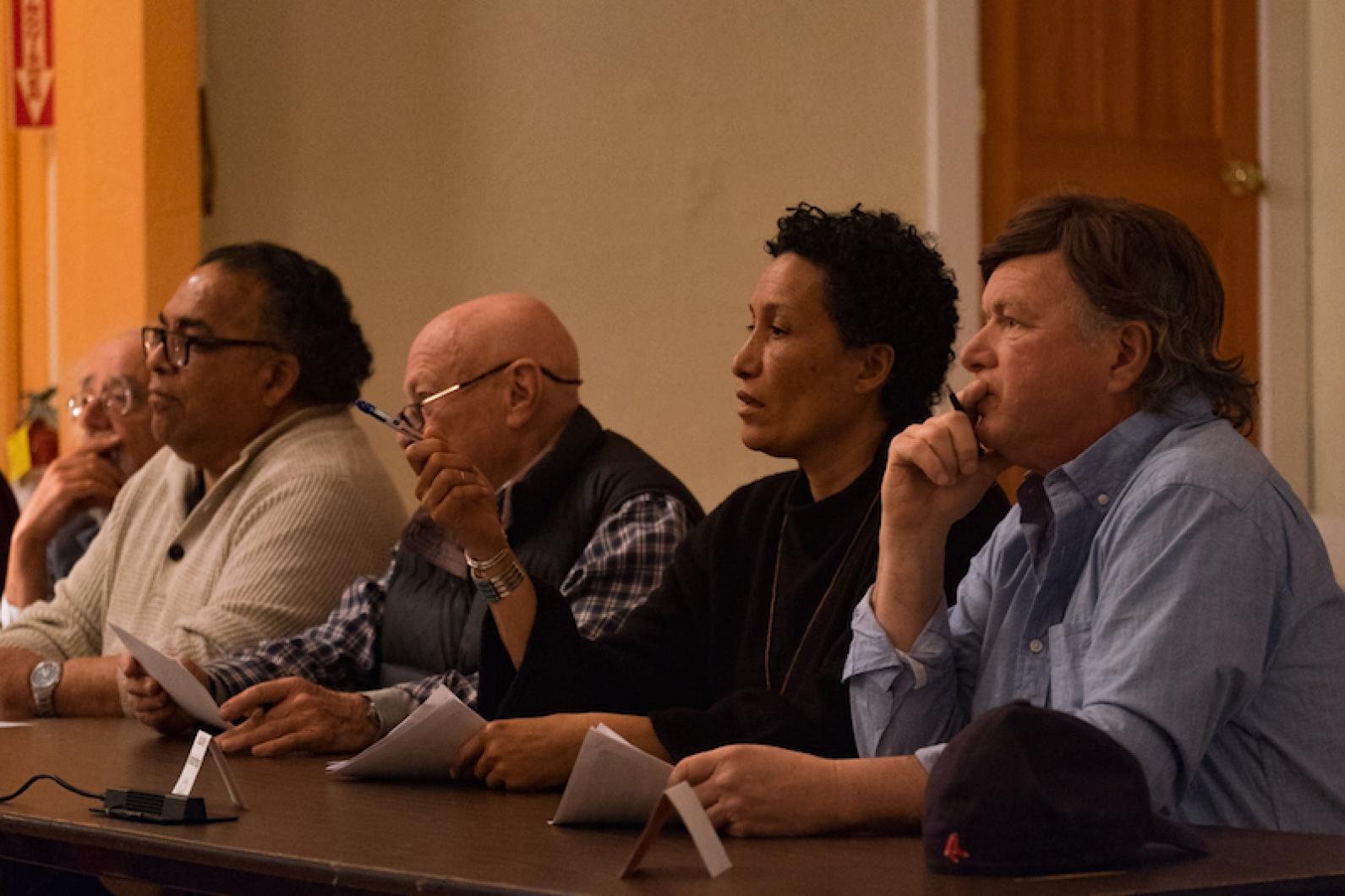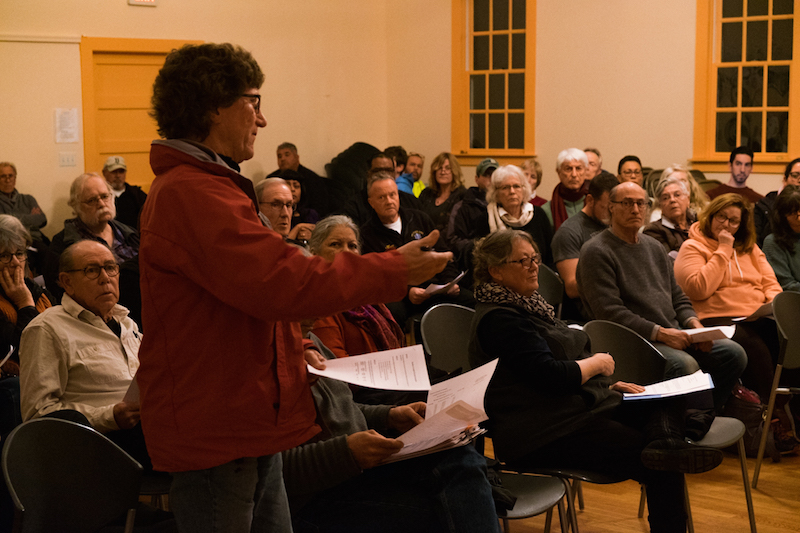Aquinnah voters Tuesday night took the first step toward changing their town assessors from elected to an appointed board, agreed to spend money on improvements around the Gay Head Light, allowed more tax exemptions for low income and elderly citizens, and banned the intentional release of lighter-than-air balloons in the town.
Changing the board of assessors from elected to appointed will require a second vote in the ballot box at the annual town meeting in May. The initiative for the change comes from the selectmen following more than a year and a half of tension with the town assessors over roles and authority.
“It’s a difficult, difficult relationship,”selectman Jim Newman told voters on the town meeting floor Tuesday. “The assessors were taking their own track, and we were losing control.”
Marsha Shufrin, a member of the board of assessors, spoke against the measure.
“Voting is a privilege and a right,” she said. “I don’t think you should take it away.”
The question passed 32-10 on a standing vote.
If it is approved in the ballot box in the spring, the transition would take place as elected terms run out for the three assessors.
Later in the meeting, voters decided to indefinitely postpone a measure that would have authorized the town to pay for additional internet capacity for the assessors. The issue of modems and bandwidth expense were one part of the long-running dispute between the two boards.
In other business on the 11-article warrant, voters also agreed to spend $20,000 to build a permanent wooden walkway from the shops at the Cliffs to the lighthouse, replacing a temporary walkway that exists now.
The money will come from free cash.
A companion article seeking $25,000 to build a dividing barrier between the walkway and the road was indefinitely postponed after town administrator Jeffrey Madison told the meeting that the town has state highway funds available that can be used to build the divider.
Voters also approved $1,424 to begin town-operated tours of the lighthouse. Previously, the Martha’s Vineyard Museum operated the tours and covered the startup expense. Town officials said the expense will be reimbursed to the town when the tours begin to generate revenue from tour fees.
There was extensive debate over an Islandwide request from the regional high school to establish a stabilization fund. The fund would be used to finance capital projects ranging from $100,000 to $1 million, amounts that would not make economic sense to bond, according to school business administrator Amy Tierney.
“This worries me,” said Mr. Newman. “Our budget is over $1 million for 42 children. It’s overwhelming for this community.”
Up-Island regional school committee member Theresa Manning spoke in favor of the measure.
“The main reason our assessment is up is because of a dramatic increase in students,” Ms. Manning said. “It doesn’t negate the fact that the buildings are in need of a lot of repairs. We can’t really lump that into our school budgets because a lot of towns are already struggling.”
Aquinnah is the first of the six Island towns to take up the request. At least four of the six towns must approve in order for the fund to be created.
In the end the article passed on a voice vote.
Voters also approved a series of three complicated articles that would give tax breaks to elderly and low-income taxpayers.
The first would increase the income limits for senior taxpayers to defer part of their property tax payments until after they die.
A second article would lower the age requirement from 70 to 65 and loosen income restrictions for the state circuit breaker income tax credit for older taxpayers.
A third measure would exempt some low-income families and some low and moderate income seniors from paying the three per cent property tax surcharge under the Community Preservation Act.
While much of the debate centered on explanation of the tax break proposals, some raised concerns about how they would affect the town’s revenue.
“Someone needs to come up with an estimate as to what it would cost the town to grant these exemptions,” said Allen Rugg, chairman of the finance committee.
All three articles will also need approval on the ballot in the May town election in order to pass.
Also Tuesday, voters enthusiastically and unanimously passed a ban on helium and other lighter than air balloons, offered through a citizen petition organized by students at the West Tisbury School. Many of the students and teachers attended the meeting, carrying signs and passing out pamphlets. During discussion, the students outlined how balloons can litter the environment and harm wildlife.
“What on this Island matters,” eighth-grader Sam Fetters asked the voters. “Our beaches. The first time I walked on them, I was amazed by how beautiful they were. If we want them to stay that way, we must maintain them.”
Passage of the balloon release ban was greeted with loud applause.
“I want to commend these young men and women,” said voter Len Butler. “It shows there is hope for democracy in the next generation.”








Comments (10)
Comments
Comment policy »